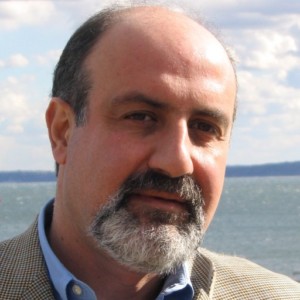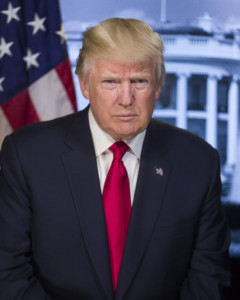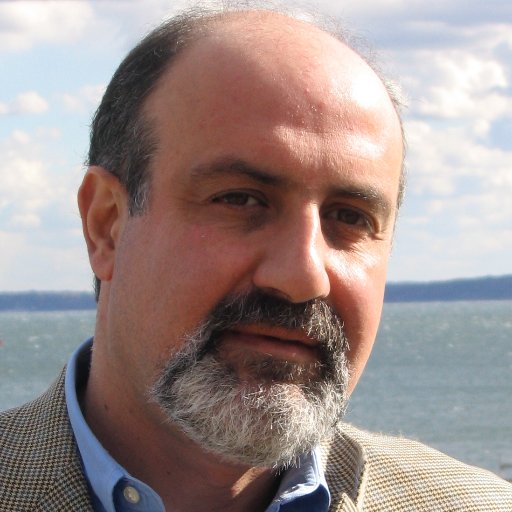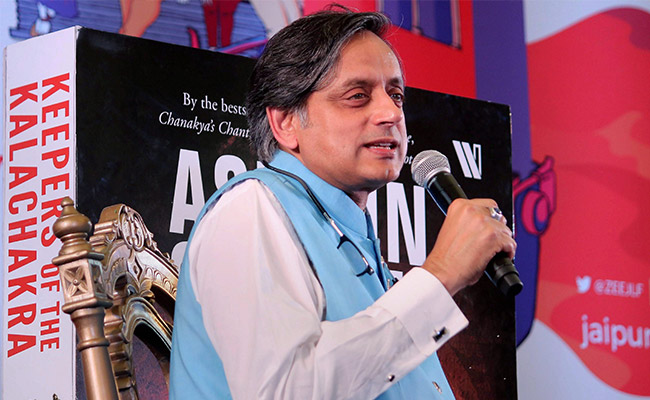By Vikas Dutta
Jaipur–Donald Trump’s victory in the US presidential election, deemed the biggest disruption among a string of similar unprecedented, unexpected developments, is actually a “mild correction” by the system in an attempt to preserve itself, contends Lebanese-American scholar of unpredictability and randomness Nasim Nicholas Taleb.
“(Trump’s victory) was not a disruption but the system putting on brakes. Donald Trump’s victory is to preserve the system, not disrupt it…. an attempt by the system to save itself by mild corrections,” the outspoken essayist and author said at a session titled “A World of Disruptions” on the second day of the Jaipur Literature Festival on Friday.

On Trump’s controversial utterances, Taleb stressed that he was running to be a president, “not an archbishop”, adding the real danger was the growing power of multi-national corporations.
“The real disruption is the fact, never been seen before in history, of people getting rich without taking risks,” he said.
Supporting him, renowned South Korean development economist Ha-Joon Chang argued that in economic terms, Trump’s impact will be limited, due to international and bilateral agreements the US is part of.
“He is going to disappoint the people… then what?” posed Chang, the author of “Bad Samaritans: The Myth of Free Trade and the Secret History of Capitalism”, “23 Things They Don’t Tell You About Capitalism” and “Economics: The User’s Guide”.
Bangladeshi author, activist and entrepreneur Sadaf Saaz admitted that Trump’s victory had terrified and personally affected her and made her question her idea of America, but British Middle East expert Emma Sky said it was important to understand why he enjoys support.

“While liberals are horrified at his words and think him an abomination, his supporters do not take his words literally,” said Sky, who also served as a political advisor to the US military commander in Iraq 2007-10 and her book “The Unraveling: High Hopes and Missed Opportunities in Iraq” describes how American soldiers were like Trump’s voters.
While contending that the Pax Americana or American leadership, which had been a feature of the post-Second World War world was dead, Sky said it was too early to write the US off.
“It is still a strong economy and only in relative decline,” she said.
On what had triggered the chain of disruptions, Chang noted that the history of capitalism is always disruptive and the dangerous trend of the creation of a global elite unaffected by market forces, Sky contended it did not begin by 9/11 but the invasion of Iraq, Saaz to a interplay between the “local and the global” trends, while Taleb, always the maverick, said instead of focussing on geo-politics and capitalism, the effect of globalisation on culture should be understood.
“It is what I call the Harry Potter effect – the ‘Winner take All’ result. Monoculture not only destroys the scenery, it is also not sustainable.. systems collapse when they get too large”.
Asked by moderator, Patrick French on what they thought the new disruptions would be, Saaz listed the war against extremism and climate change. Sky, noting climate change was taken, opted for “fragile masculinity”, Taleb chose education in the Western world, and Chang for “angry people” missing out and advocated urged this be dealt with by abolishing tax havens, curbing power of financial markets to make companies seek short-term profit and making corporations pay taxes.
“Some companies building schools will not be enough,” he said. (IANS)














